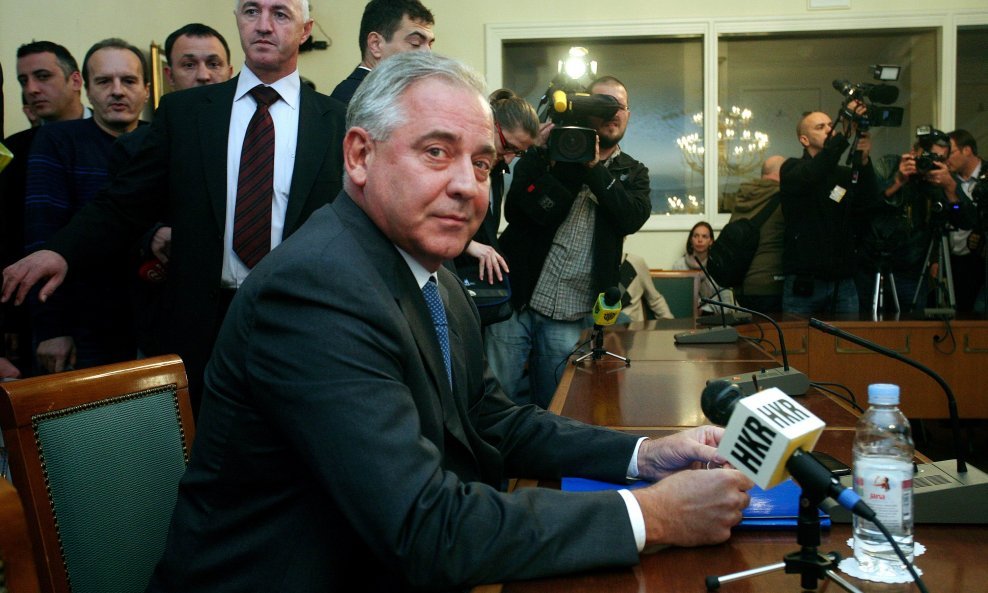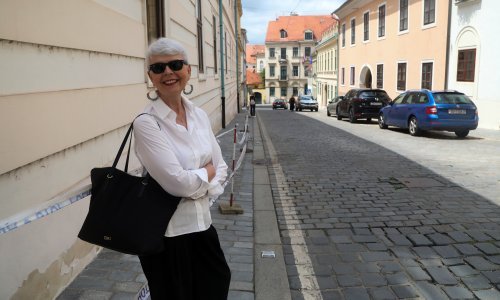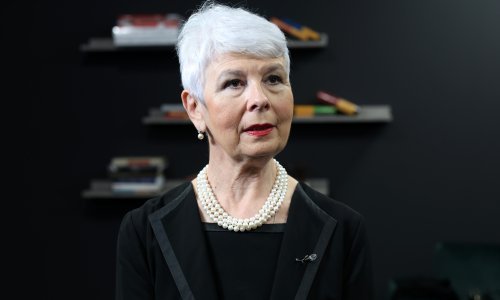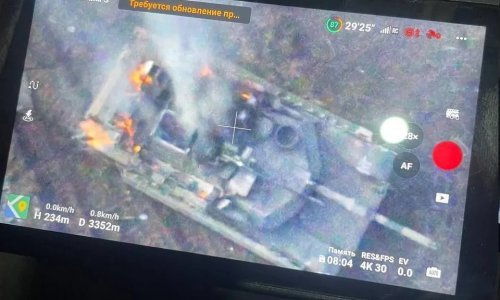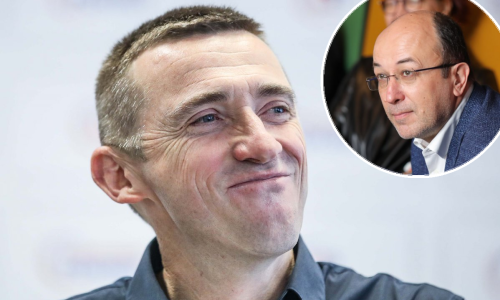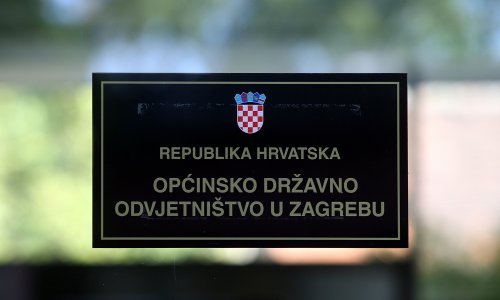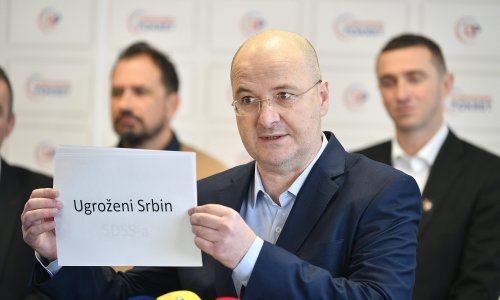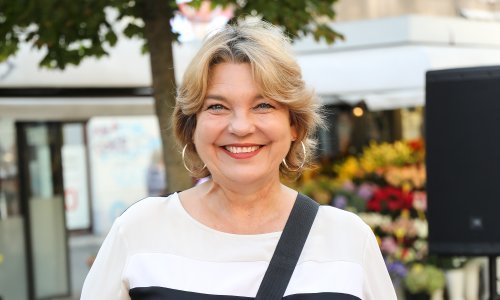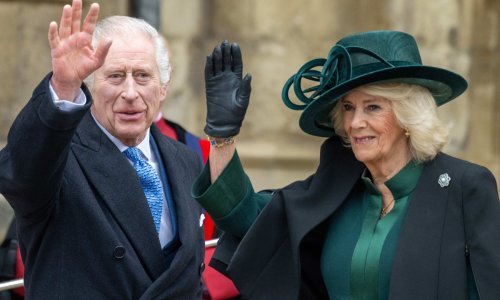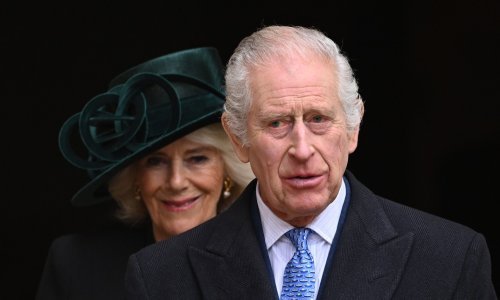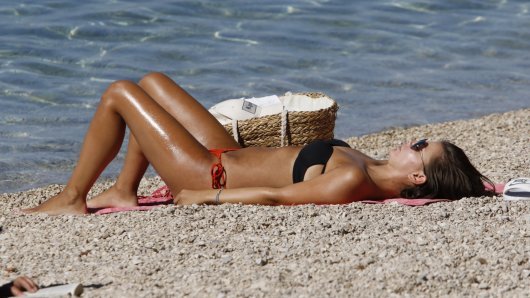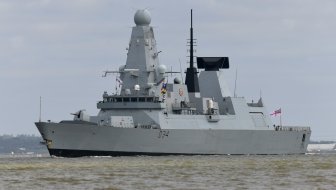Former Croatian Prime Minister Ivo Sanader has confirmed that his successor Jadranka Kosor participated in the final stage of preparations to modify INA's shareholders agreement, in her capacity as Deputy Prime Minister, together with ministers Damir Polancec, Ivan Suker and Marina Matulovic-Dropulic.
In response to the question by Goran Maras, a Social Democratic Party (SDP) representative in the parliamentary commission of inquiry probing the privatisation of the leading Croatian oil and gas company, whether it was true that he had personally asked Kosor to be engaged in the preparations of the amended agreement, Sanader on Tuesday answered affirmatively.
"Yes, it is true. I don't see anything unusual in that," Sanader said answering questions from the commission's members.
He explained that at a meeting of his inner cabinet, he had asked ministers if they had agreed on the text of the future agreement and, when he saw that they were still at odds on the matter, he decided to engage Kosor in the preparations of the amended agreement.
"This is how the government functions," Sanader said, adding that "If something which is on the inner cabinet's agenda is not harmonised, it is returned, and I assessed that it would be good to engage Deputy Prime Minister Kosor in the final stage and help them reach the right solution".
"I don't see anything unusual in that," Sanader said, which prompted Maras to say that neither did he, "except that the current Prime Minister (Kosor) has denied it".
In response to the question asked by this SDP parliamentarian, if he had consulted Kosor about INA, Sanader said that "there is no Prime Minister who will not rely on their associates".
Sanader said Kosor had been his first Deputy Prime Minister and that he did the same as his predecessor Ivica Racan, who had relied on Goran Granic.
Maras wanted to know whether it was possible that the ministers had not studied the amendments to the shareholders agreement before voting for them at a government session, given that Deputy Prime Minister Ivan Suker testified before this commission that he had not studied the document and that he voted for it after hearing a presentation on the matter by the then Deputy Prime Minister Damir Polancec.
Sander responded that before making every important political decision, the presidency of the Croatian Democratic Union (HDZ) and partners in the ruling coalition discussed the matter.
"When it came to INA, the HDZ Presidency discussed it on several occasions and gave guidelines to Polancec and others who were conducting the negotiations (with MOL)," Sanader said.
He went on to say that all in the government who voted for the agreement knew exactly what the agreement was about.
"That also makes sense. There is no government and there is no minister that would raise their hand for something if they didn't know what it was about, or they would be ministers with no integrity," Sanader said.
Josip Salapic of the HDZ asked whether the HDZ Presidency was acquainted with the final text of the agreement together with an annex, which Salapic believes substantially changed the contents of the agreement. According to Salapic, the annex in question was only on the agenda when the government voted for the amendment agreement.
Sanader said that he did not know "if it was exactly as Salapic has said", adding that all important segments of the agreement had been presented to the HDZ Presidency.
Sanader did not want to answer when asked if he met MOL executives in the HDZ main offices one month before stepping down as Prime Minister and two months after he resigned.
"I did not participate in the negotiations, but I did meet with them," Sanader said, adding that it was the practice to meet with partners who requested meetings with top-ranking officials.
Asked why the government had signed an agreement on the divestiture of the gas business from INA, although that sector made losses, Sanader said that it was of crucial importance to ensure Croatia's energy independence, as the delivery of gas supplies depended on the relations between Russia and Ukraine.
According to his testimony, Sanader is sure that the gas business will bring profits to Croatia when the market begins defining gas prices, as required by the European Commission.
Sanader dismissed Maras's interpretation that his cabinet did not need to change the shareholders agreements. This SDP MP believes that the government could have agreed with the Hungarian company on the make-up of the INA supervisory board without modifying the said agreement.
"Are you a MOL representative so that you know that they would accede to (the board's new make-up)?" Sanader responded to Maras, explaining that it should not be expected of MOL to accede to retaining the same managing rights with a 48-percent stake in INA as with its previous 25 percent interest.
Sanader said that during the first round of INA's privatisation in 2003, MOL was given more rights, which led to the second privatisation round.
Sanader recalled that after the expiry of a five-year moratorium on the sale of INA shares by MOL, the Croatian government could either formulate a new agreement or let the Hungarians do what they wanted with INA shares.
"We opted for the first solution," Sanader told the parliamentary commission.



